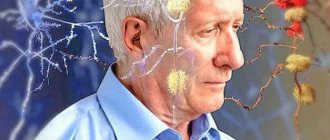When a person is in an unstable mental state, he often has a feeling of anxiety or panic, doctors prescribe him special medications. Tranquilizers and sleeping pills, when used uncontrolled, cause severe addiction. Coping with drug addiction on your own is quite difficult. In such situations, the assistance of qualified doctors is usually required.
- Read in the article:
- Drug addiction
- What is drug addiction?
- Mental dependence on drugs
- Causes of pill addiction
- Stages of drug addiction
- Consequences of drug addiction
- Types of drug addiction
- Dependence on psychotropic drugs
- Painkiller addiction
- Tranquilizer addiction
- Sleeping pill addiction
- Antidepressant addiction
- Prevention of drug addiction
- The danger of drug addiction
- Drug withdrawal
- Drug overdose
- Treatment methods for drug addiction
- Psychotherapy for drug addiction
- Getting rid of drug addiction on your own
- Treatment of drug addiction in the clinic
Treatment prices:
| Sign up for a free and anonymous consultation with a narcologist | 0 ₽ |
| Initial consultation with a narcologist | for free |
| Consultation with a psychologist in person or Skype | 3 000 ₽ |
| Psychiatrist consultation | 5 000 ₽ |
| Psychodiagnostics / pathological diagnostics | 7 500 ₽ |
| Narcopsychotherapy | 50 000 ₽ |
| Consultation with a psychologist and selection of a treatment and rehabilitation program for an addict | for free |
| Intervention session | 12 000 ₽ |
| Social rehabilitation of alcohol addicts | for free |
| Outpatient rehabilitation in Moscow | 33 000 ₽ |
| Standard rehabilitation program | 40 000 ₽ |
| Intensive rehabilitation program | 80 000 ₽ |
| Premium rehabilitation program | 120 000 ₽ |
| Medical and social rehabilitation (21 days) | 150 000 ₽ |
| Rehabilitation Spain, Bulgaria | 200 000 ₽ |
| VIP rehabilitation program | 350 000 ₽ |
| Online addiction rehabilitation course | 28 000 ₽ |
| Rehabilitation of age-related alcohol addicts | 50 000 ₽ |
| Rehabilitation of drug addicts | 60 000 ₽ |
| Adolescent social-psychological-pedagogical rehabilitation | 70 000 ₽ |
| Psychotherapy | 5 000 ₽ |
| Family psychotherapy | 6 000 ₽ |
| Support groups for loved ones of addicts | for free |
| Webinars for relatives of addicts | for free |
| School for codependents | 3 000 ₽ |
| Transfer support | negotiable |
| Motivation for treatment | 6 000 ₽ |
| Escort to the clinic | 6 000 ₽ |
| Testing (urine/blood/hair) | specify |
Expand
Still have questions? Call us!
8
Free consultation and appointment
Drug addiction
Drug addiction develops with prolonged use of certain drugs. The emergence of a constant need to calm down with the help of medications develops gradually. Being in a state of depression, a difficult life situation, or anxiety, many people see a solution to the problem only through the use of sedatives.
What is drug addiction?
When using psychotropic drugs, there is a strong effect on the central nervous system. The person experiences a state of euphoria and lightness. Hallucinations often occur and lethargy is present. With prolonged use of medications, withdrawal syndrome appears, accompanied by negative symptoms: aggression, irritability, anxiety and increased sweating. It is these unpleasant symptoms that force a person to take drugs again.
Mental dependence on drugs
Drug addiction leads to the rapid development of psychological attachment. A person's thoughts are always focused on whether he has pills. If the drug is missing, panic sets in. The addict believes that his normal state depends only on taking medications, and thanks to them his health is stable. Removing mental dependence is one of the main tasks in the treatment of drug addiction.
Causes of pill addiction
There are two main types of drug addiction.
- The first occurs when a person takes pills that are prescribed for certain diseases to relieve the symptoms but not the cause. Such medications are often prescribed for severe headaches, insomnia, and nervous disorders. For this, antidepressants, tranquilizers, painkillers or antipsychotics are used. Dependence forms if treatment of the underlying disease is not completed.
- The second type of addiction is more complex. An addiction is formed when the drug is included in metabolic processes, and if it is rejected, serious disruptions in the functioning of internal organs occur.
Stages of drug addiction
There are no absolutely safe medicines. Each type of drug should be used as prescribed by a doctor in the correct dosage. If a person begins to increase the dose to improve his mental state, addiction forms. The body quickly adapts to large amounts of medication and can no longer function normally without doping. At the initial stage it is much easier to get rid of addiction. At a severe stage of development, longer time and complex treatment are required.
What drugs are you addicted to?
- Antidepressants and neuroleptics, for example Melipramine, Pentalgin. If a person does not try to eradicate the cause of his disease, but only takes medication, then after stopping it the pain returns, apathy is observed or, conversely, aggressiveness, pressure surges.
- Tranquilizers, psychotropic tablets and painkillers, for example Sibazon, Gidazepam, Phenazepam. Large doses of these drugs cause irreversible processes in the brain and disable the central nervous system.
Treatment calculator
Field score:
Total score:
Patient age
Length of use
What he uses Has he previously undergone treatment Consent to treatment Concomitant diseases Employment
Waiting for values to be entered
Consequences of drug addiction
Exceeding the dose of the drug for a long period leads to serious consequences. Independent refusal provokes the appearance of signs of withdrawal syndrome, characteristic of alcoholics and drug addicts, with all the ensuing consequences. The functioning of the heart and digestion is disrupted, severe headaches appear, and depression develops. Just like drug addicts, there is a high risk of overdose, which can be fatal.
Addiction
The concept of addiction was introduced by the World Health Organization in 1964. Later, a classification of dependencies was compiled. Since that time, such phenomena as alcoholism or drug addiction have ceased to be considered bad habits, since it has been proven that addiction to any substance is a progressive disease that undermines health at all levels of human life.
Today, addiction includes not only an acute craving for any psychoactive substances, but also mania, painful addiction to any everyday objects or phenomena. They can manifest themselves on the physical, psychological, and spiritual levels, distorting the human consciousness, forcing it to do what our body does not need and can cause harm to health, psyche or relationships with other people.
What is addiction?
Addiction refers to a felt, obsessive need for something. Foreign medicine also uses the term “addiction” to refer to this concept. The prerequisites for the emergence of addictive behavior may be the desire to hide from reality with its problems and imperfections by correcting one’s own consciousness. Sociologists, psychiatrists, addictologists and clinical psychologists study the general mechanisms of development of any addiction.
In medicine, addiction refers to a person’s obsessive desire to repeat certain actions, the inability to perform which provokes psychological or physical changes.
Reasons for the development of addictions
Addictions can be caused by many physiological, mental, social and cultural factors. One of the main ones, as some scientists believe, are certain biochemical processes that occur in the human body.
The tendency to addiction can be caused by genetic factors, features in the structure of DNA and even mental disorders. Addictive behavior can arise as a result of exposure to environmental factors.
The type of addiction is also influenced by a whole range of factors: social environment, upbringing and childhood problems, relationships with others.
The main factors influencing the formation of addiction are:
- Psychology: character traits, personality.
- Social sphere: upbringing in a socially disadvantaged family, despotism, overprotection or neglect, social circle.
- Motivation: the desire to become part of a certain team, to show one’s importance, to become a leader.
- Needs: need for communication, emotional support, understanding.
Basic signs of dependencies
Without even knowing it, a person can develop several types of addiction at once. A feature of this disease is the denial of the presence of any problems by the addict himself, up to the extreme stages. This is often explained by the fact that very few people are able to objectively evaluate their actions and actions and do not know how to determine the degree of craving. But there are some signs that indicate the presence of a formed addiction.
- A constant need for something that is constantly increasing. If previously a person played on the computer for an hour or two a week, now he devotes all his free time to this. Food or alcohol addiction works on the same principle - if at first a person gets drunk with one or two glasses, then with experience of consumption he requires increasingly larger doses.
- It is difficult for a person to stop; he wants to repeat a certain action again and again. At the same time, the addict perceives attempts by other people to intervene and correct the situation extremely negatively.
- Changes in emotional behavior. In the absence of an opportunity to satisfy his needs, the addict develops anxiety, irritation, and aggression.
- Changes in daily routine and rhythm of life. Over time, an addiction draws a person deeper and deeper, making all other areas of life less significant and uninteresting. Personal life suffers from this, problems arise at work or with studies due to lateness, neglect of one’s duties.
Consequences of dependencies
Formed addiction can have a detrimental effect on a person’s physical and mental health, destroy his family, career, and break social ties. Many addictions lead to serious illnesses that kill the human body, brain and nervous system.
If you don't take action and start fighting, addiction can completely consume a person, forcing him to spend all his energy, time and money on the object of addiction.
Find out treatment recommendations without leaving home for free
To select a treatment plan, you just need to leave a request, we will contact you to select the time and specialist you need
Submit your application
Types of drug addiction
Drug abuse leads to two types of addiction:
- Psychological
. Develops immediately after discontinuation of the drug. In the absence of the drug, a person becomes anxious and irritable. An irresistible desire to take the medicine appears, turning into an obsession. - Physical
. It is manifested by the occurrence of withdrawal syndrome after refusal to take the drug. A person experiences muscle pain, cramps, chills, and malfunctions in the internal systems of the body.
Any negative manifestations of addiction require professional help from doctors. You need to put on an IV to relieve withdrawal symptoms and cleanse your body of toxins.
Dependence on psychotropic drugs
Seduxin, nozepam, ephedrine, alprazolam and other psychotropic drugs are prescribed for neuroses and depressive states. Side effects with prolonged and uncontrolled use have too negative an impact on the psyche. With withdrawal and a lack of psychotropics in the body, a person begins to feel unwell. To get rid of addiction, replacement therapy is required, which is carried out in a clinic by qualified doctors.
Painkiller addiction
Typically, painkillers are used for headaches. Instead of looking for the cause of the pain, people begin to extinguish the symptoms by falling under the influence of the drug. Frequent use of analgesics and painkillers can be highly addictive, which is difficult to overcome on your own.
Tranquilizer addiction
Tranquilizers have different effects on the body. Dependence develops gradually and is expressed in aggravated withdrawal symptoms and frequent bouts of intoxication. The degree of severity depends on the type of drug, the dose used and the period of administration. Commonly used drugs include Relanium, phenazepam, lorazepam, diazepam, sibazon, medazepam.
Sleeping pill addiction
Many people suffer from insomnia for various reasons. Sedative medications help normalize sleep if the dosage is followed. Therefore, it is not recommended to use sleeping pills on your own. Barbiturates and other sleeping pills lead to severe drug addiction.
Antidepressant addiction
The danger of addiction to antidepressants is that all the signs and consequences of addiction are similar to drug addiction. A person lives only thanks to pills, and if he refuses, he feels helpless and irritable.
Still have questions? Call us!
8
Free consultation and appointment
Rehabilitation
Treating drug addiction is a difficult and lengthy process. However, our experience shows that it is possible to get rid of this addiction. This is facilitated by following the recommendations of a narcologist, the help of relatives and the desire of the person himself. To consolidate the results, we recommend staying in a specialized rehabilitation center.
If this is not possible, our clinic’s outpatient programs can come to the rescue. The task of specialists is to teach a person to live without the use of harmful medications, to believe in his complete recovery, to draw vital energy from interests, hobbies, family and work.
Have you noticed that you or a relative is addicted to medications? Contact us in any convenient way!
The danger of drug addiction
Dependence on tranquilizers or antidepressants leads to dire consequences if not treated in a timely manner. A person under the influence of chemicals loses his mind and develops serious pathologies. Drug addiction leads not only to personality disintegration, but also to frequent withdrawal symptoms and overdoses. Both conditions often result in premature death.
Drug withdrawal
After stopping the medication, a person experiences withdrawal symptoms. Symptoms depend on the type of drug. The main signs of withdrawal syndrome are expressed in psychological disorientation, a feeling of fear and complete helplessness arises. Addicted people in a state of withdrawal experience fear, panic, and severe headaches.
Drug overdose
In case of a drug overdose, a person experiences the following symptoms:
- Restlessness or lethargy;
- Copious secretion of saliva;
- Pupil dilation;
- Tremor of the limbs;
- Reduced blood pressure;
- Breathing disorders;
- Hallucinations appear.
Severe overdose often leads to coma.
Who is at risk?
If you look again at the list of drugs that most often cause addiction, we can assume that the main risk group is as follows:
- People suffering from rhinitis (acute, chronic, vasomotor, allergic). This issue deserves special mention. Nasal congestion leads to a desire to eliminate the unpleasant symptom. The most convenient way is to use vasoconstrictor drops. The medicine acts on the adrenaline receptors of blood vessels and quickly eliminates congestion. It is permissible to use such drugs for 3 to 7 days; with longer use, the vessels become accustomed to the action of the drops and, as a result, stop responding to the active substance. Often, after long-term use of vasoconstrictors is discontinued, complaints of deterioration and loss of smell appear.
- People susceptible to depression.
- Aged people.
- Athletes.
- People whose work involves difficult, stressful or extreme conditions.
The named groups are only conditional categories. In fact, anyone who abuses medications may be at risk.
The use of vasoconstrictor drops leads to the adaptation of blood vessels to the action of the drops and, which leads not only to a deterioration in the effects of the drug, but also to the inability to live normally without their use.
Treatment methods for drug addiction
Treatment of drug addiction includes complex measures. A difficult task is solved using several techniques; it requires a highly qualified doctor and a complete diagnosis of the body’s condition. Complete recovery from addiction is possible with an individual approach to each patient. Complex therapy and subsequent rehabilitation will help you get rid of severe addiction forever.
Psychotherapy for drug addiction
Getting rid of physical addiction to medications is half the success. It is important to carry out psychological work aimed at stopping taking medications. Only qualified psychologists and psychotherapists will be able to free the addict’s thoughts from unnecessary information. Drug treatment clinics provide personal and group motivational sessions. People learn to live without medications, cope with stress and problems without using psychotropic substances and sedatives.
Getting rid of drug addiction on your own
Getting rid of drug addiction on your own is almost impossible. With prolonged use of drugs, a person experiences irreparable changes in the psyche and develops concomitant chronic diseases. It is quite difficult to independently refuse a drug that stabilizes your mental state.
How to get rid of drug addiction
In each specific case, doctors at the Emerkon clinic develop an individual treatment program for drug addiction, focusing on the specifics of the drug, timing of its use, etc., so treatment always begins with a conversation with a narcologist-psychiatrist. Psychotherapy is required, as well as droppers to remove from the body the substances that make up the drug that have caused addiction.
It is not always possible to abruptly stop taking a drug; withdrawal syndrome can have very dangerous consequences. The patient gives up the medicine gradually - the dose is reduced or the drug is replaced with a similar one, but with a lower dosage. In case of long-term addiction and severe complications, rehabilitation may be required after completion of treatment, which you or your loved ones can also undergo in our clinic.
Treatment of drug addiction in Krasnodar, Karasun district, st. Fabrichnaya 5 – clinic “Emerkon”









